|
Scripture Readings: Genesis 22:1-14 | Psalm 13 | Romans 6:12-23 | Matthew 10:40-42
Abraham said, “God himself will provide the lamb for a burnt offering, my son.” So the two of them walked on together. Now I know I said last week’s Gospel reading, seemed like a difficult text to talk about on father’s day… but our Old Testament reading today takes that theme of familial tension to a whole new level. This is one of those parts of God’s story, that we may have heard hundreds of times before, but which can still leave us feeling disturbed and more than a little bit unsettled. Just like last week’s reading we are left asking: What is going on here? Why would God ask for such a thing? What kind of a good and loving God would ask someone to slay their own innocent son? Once again, the temptation for us can be to assume that we ultimately know what’s best, and then to take up the task of judging whether or not God lives up to our ethical standards. But instead, let us try to resist this urge, and, Lord willing, let us take on the work of a faithful listener… as one who is trying first to hear and understand, God’s word to us, even if it goes against our own first impressions. We are being asked first of all to trust, even when we don’t understand… Something that is challenging for all of us to do. This part of the story begins with an obvious, but important observation: This story is about how “God tested Abraham” (Genesis 22:1). It’s not primarily about somehow proving that God is trustworthy. Although time and again in the story we find that the Lord is faithful beyond measure, graciously giving to Abraham everything that he needs. Rather, the question that is driving the story is whether or not Abraham is trustworthy: if he will be willing to truly trust the Living God with everything. It is Abraham’s life in the spotlight, it is his character and commitment that are on trial… and along with him we are drawn into the story as well. If we look a bit closer at Abraham’s story so far, we find a complicated story. He has his moments of deep obedience, but mixed in with some very serious setbacks. It all begins in Genesis chapter 12: As part of God’s world-wide rescue mission to restore His fallen creation, God calls Abraham out from the land, and way of life, of his ancestors… promising to give him a land and life all of his own. Further on we find God making some other amazing promises, including the promise that Abraham and his wife, Sarah, who were both well beyond child-rearing age, would miraculously have a son together, and that through this child all the nations of the world would be blessed. God invites Abraham into a unique and blessed relationship. But while Abraham says yes to, and wants all that God has promised him, we find him stumbling along the road of obedience and trust, often driven by fear and doubts, taking what he thinks are easy short-cuts, and leaving those closest to him to suffer for it. Like his first son Ishmael, born to Sarah’s servant, Hagar, who were both forced out of Abraham’s family, and left desperately alone. That is, until the Lord mercifully steps in, and bringing hope out of their despair. In short, Abraham’s life so far has been one of unsteady devotion… of shaky faithfulness. Despite all this, God still clearly wants Abraham to be a part of His own divine story. Throughout his stumbling journey towards wholehearted faith, we find God right there with him, patiently walking along with him, in utter faithfulness. Leading us all the way to today’s reading: to the climax of Abraham’s story, when God commands him to offer up Isaac his promised son as a sacrifice. What a thing to ask for… the life of his beloved son. We rightly cringe at the thought of human sacrifice, largely because our culture way back has been formed by the story of God. And the idea of slaying one’s own child strikes us as barbaric and heartless. But for Abraham, this was an even more intense and terrible request. Isaac embodied absolutely everything for Abraham. He was the one glimpse of hope that all of his own struggles and strife, that his entire life was not meaningless… that it wouldn’t all be in vain. For Abraham, Isaac was God’s gracious love and promises personified. Isaac had been God’s priceless gift to Abraham and Sarah. God was not simply asking for his son, He was asking Abraham for everything… to put his whole life on the altar, and give it back to the Lord. What has the Lord given to us that we hold onto as precious? What are the blessings that we treasure most in life? During this time of the pandemic many of us have had to step back and rethink our priorities. People are finding that many of the things they have been striving for in life… success, money, security, pleasure, and so on, are a lot more fragile and fleeting than we had imagined. At the same time, it seems there is also a newfound appreciation for a different kind of treasures: time with family and friends, relationships, and community, justice, and kindness, goodness, and truth. These things are re-awakening in the hearts of many today; treasures we have all too often taken for granted. But this story bids us to take a step beyond this revelation: beyond simply recognizing those things that are truly worth striving for, and beyond simply reorganizing our own priorities. Through this story we are being summoned to envision setting everything aside: to surrender our dearest treasures, to hand back to God everything that we have been given. We are being called to trust the Living God with everything. And not in a vague, abstract sense, but in an uncomfortably close to home choice: to let everything go into the hands of the Lord. It is natural at this point to think about all that saying yes to this choice will cost us. To count up all the things that we can’t imagine living without, and then to think that God must be cruel to ask us to let them go. But the flip side of that question, which we do not as easily think about, is the cost of saying no to trusting God with everything. What is the cost of clinging to the treasures of our hearts, to our hopes, and dreams, instead of trusting God with our lives? The author Dallas Willard seeks to clarify this for us in writing about the high cost of nondiscipleship; that is, of choosing not to take up our cross and wholeheartedly follow Jesus. He writes: “one cannot be a disciple of Christ without forfeiting things normally sought in human life… But the cost of nondiscipleship is far greater - even when this life alone is considered - than the price paid to walk with Jesus. Nondiscipleship costs abiding peace, a life penetrated throughout by love, faith that sees everything in the light of God’s overriding governance for good, hopefulness that stands firm in the most discouraging circumstances, power to do what is right and withstand the forces of evil. In short, it costs exactly that abundance of life Jesus said he came to bring (John 10:10).”[1] Yes, following Christ, trusting God, means letting go, but it also means sharing our life completely with our gracious Lord… our, Creator, our Redeemer, and the Giver of all good things. All along, God had remained faithful to Abraham beyond all expectations, giving freely to Abraham more than he could have ever imagined. Then in this challenging command God gives him another precious gift: a life-changing call into a life of radical faith. To entrust everything Isaac embodied, all his own hopes, paternal love, and life, into the gracious hands of the Living God… reorienting his whole life forever in the process. In his book entitled Discipleship, Dietrich Bonhoeffer puts it like this: “Abraham had to learn that the promise did not depend upon Isaac, but only on God… Abraham received Isaac back, but he has him in a different way than before.”[2] The Living God Himself, not Isaac, was now the foundation of Abraham’s whole life, and this is the same relationship, the same way of life that you and I /are being called to share in too. But God’s giving goes on: This part of the story ends when God Himself provides the lamb, the means by which Isaac, and with him Abraham’s entire life, is spared, and the sacrifice that unites them together in love, pointing us to the greatest gift God gives to us all: For Jesus Christ is the true Lamb of God who takes away the sin of the world. In Christ, God offers us Himself, His entire life, embodied once and for all in Jesus, God’s incarnate Son, faithfully laying down His life to reconcile and redeem our world… who suffered, died, and was raised again to bring eternal, abundant life. Despite our own stories of unsteady devotion and shaky faith… our own imitations of Abraham’s stumbling and struggling, in Christ God has provided us /with everything that we need. Baptized into Jesus, and set free to live in Him, we are called to offer our entire lives, everything we are and have to the Living God, to set aside and resist the pull of sin, which only leads to death, to entrust all we treasure into His gracious hands, and to learn anew that everything, the preservation of our past, the enduring of our present, and the hope of all our tomorrows depends ultimately on Jesus our Saviour… the ultimate gift of God, who alone brings eternal, abundant life. In our struggles and our doubts, let us not turn aside, but turn again and again to our gracious Lord, who invites us to come to Him, to trust in Him, and receive our life in Him. May the Holy Spirit, whom Jesus promised to give to all those who trust in Him, keep our minds, our hearts, and our whole lives faithful to our Lord, that we too might take our part in God’s world-wide rescue mission, and find ourselves transformed by His gracious faithfulness. Amen. [1] Willard, Dallas. In Devotional Classics: Selected Readings for Individuals and Groups (edited by Richard J. Foster and James Bryan Smith) (p.16). HarperSanFransisco. Italics mine. [2] Bonhoeffer, Dietrich (2003). Discipleship (p.97) Minneapolis: Fortress Press.
0 Comments
Our service of Morning Prayer, Bulletin, and Sermon for this week can be found here: And our Songs for the week can be found here: Scripture Readings: Jeremiah 20:7-13 | Psalm 69:7-18 | Romans 6:1-11 | Matthew 10:24-39
“Do not think that I have come to bring peace to the earth; I have not come to bring peace, but a sword. For I have come to set a man against his father, and a daughter against her mother, and a daughter-in-law against her mother-in-law; and one’s foes will be members of one’s own household.” Interesting reading for Father’s Day… These are some surprising, unsettling words to hear coming from the mouth of Christ… from the One we proclaim not only teaches but embodies self-giving love. These words might seem more fitting if they came from some merciless revolutionary warlord… or from a power-mad tyrant, bent on beating back any who would defy them. I mean… dividing up families? A sword instead of peace? This doesn’t sound like the Jesus we know. How do these divisive words fit into the Good News? These questions came pretty naturally to me… and maybe they did to you as well. Quite easily I started off with what I thought Jesus should be saying… positioning myself as the one who already knows what’s best… and who’s job it is to examine Jesus to see if He will align with me… with what I already believe to be right and good. Now I know this kind of thing is easy enough for anybody to do. It’s pretty much the way most of our society functions these days… And to be fair, what Christ is saying here stands out precisely because it DOES seem so out of place. It seems He IS being provocative… but to drive home a clear point: Jesus is not calling for us to agree with Him… but to trust and follow Him. He is not calling for us to agree with Him… but to trust and follow Him. To have our lives realigned by Him for God and His good Kingdom. To step off of our thrones and to own Him as our Lord… to take up our task as servants and students, and listen to our Master. We are not at all used to thinking this way… and for very good reasons we often cringe now at words like master and servant… seeing how connected they are to evils like slavery, oppression, injustice, and cruelty. This is unsettling stuff to be sure… but that is actually part of what needs to happen: to have our hearts and our heads shaken up a bit so Christ’s words can actually get through to us. So, after all that, what IS Jesus trying to say to us in these unsettling words? Why the talk of family division, and swords instead of peace? This whole passage, and chapter from Matthew’s Gospel is about being prepared to share in Christ’s ministry. It began with Jesus calling the twelve, and sending them out as bearers of the Good News: announcing the coming of God’s good Kingdom through their words and acts of mercy.[1] He was inviting them into, and empowering them to participate in, the great rescue mission of God… Preparing His disciples… His students… apprentices… to join with Him in His work. And centuries later we too are being invited to take our part along with them… to share in and share Christ’s good Kingdom with the world around us. But Jesus knew all those centuries ago what was coming for those who would follow Him. Opposition is bound to arise, not only from strangers… but even from those closest to us. We’re not talking about the natural divisions and fights that happen in families… as painful and disruptive and destructive as they are. And were not talking about the kind of tensions that come when someone close to you tries to force their faith or their values onto you. It’s not that following Jesus means we should become intolerable self-righteous know-it-alls. But rather, we’re talking about the conflicts that come when one’s deepest and highest commitments… their way of life in the world is at odds with those around them. The talk of division and swords prepares us for the painful separation that can occur when the way of Jesus and the ways of the world lead in opposite directions. The kingdoms of the world, will clash with the coming of God’s Kingdom… especially when they feel their way of life being challenged. Though we long and hope and work for peace, sometimes it is not up to us… we are called first of all to faithfully follow our Lord. This theme is by no means new to Matthew’s Gospel. Tracing the story all the way back through to the Old Testament, we can see the same tensions at work, within ancient Israel itself: called to be God’s chosen people, but conflicted and divided. We could think of Jeremiah, whose words we heard in our first reading this morning. But it turns out there’s an even clearer connection between Jesus’ unsettling words to His disciples and the Old Testament prophets… because Jesus is actually quoting them from the prophet Micah. In Micah chapter 7 we find the following bleak assessment of the state of society in Judah during his day: “The faithful have disappeared from the land, and there is no one left who is upright; they all lie in wait for blood, and they hunt each other with nets. Their hands are skilled to do evil; the official and the judge ask for a bribe, and the powerful dictate what they desire; thus they pervert justice… Put no trust in a friend, have no confidence in a loved one; guard the doors of your mouth from her who lies in your embrace; for the son treats the father with contempt, the daughter rises up against her mother, the daughter-in-law against her mother-in-law; your enemies are members of your own household. But as for me, I will look to the Lord, I will wait for the God of my salvation; my God will hear me.” [2] One scholar, N.T. Wright, makes this helpful point: "In this passage, the prophet predicts the terrible divisions that would always occur when God was doing a new thing. When God acts to rescue his people, there are always some who declare that they don’t need rescuing, that they are comfortable as they are. Part of the reason for [Jesus] quoting this passage here is to say: don’t be surprised if this happens now; this, too, is part of your tradition! Your own scriptures contain warnings about the great disruptions that will happen when God finally acts once and for all to save you."[3] In our day we can see the same patterns at work: injustice and evil abounding, and those who strive to stand for truth are often viciously opposed by their neighbours who seem to like things fine just the way they are. Think for a moment about the Black Lives Matter movement. They are currently drawing our attention to an unsettling, and uncomfortable truth: that for centuries our North American society has in many ways gone on as if Black lives do not matter… and now they are calling for everybody not only to agree with the basic statement that Black lives do in fact matter, but also to live each day convinced and transformed by this truth. To start noticing all of the people we may have been ignoring or exploiting, whether consciously or not… and then to make the changes that we need to make to finally set things right. This is an important matter, which deserves more than simply a passing comment… but for now let’s step back and think about the resistance this movement is facing. Taking a particular, convinced stance, and seeking to promote a different form of life, no matter how just or laudable it may seem, has brought harsh resistance and division. And this is just one example of various kingdoms clashing in our world: whenever we humans take a stand that unsettles ‘the way things are done’ we can expect things to get messy. Even so with God’s Kingdom. As disciples of Jesus, the Church is called to a different vision and form of life than we will find in the world around us. And Jesus tells us up front: living God’s way sometimes means taking a stand that others in our life may not understand or agree with. But along with these warnings, Christ also offers to us a word of hope: “Do not be afraid.” Do not be afraid. Despite the dangers, despite the disruptions, despite the tensions and the pain, when we stand in faith for Christ we are never standing alone. Jesus says to us as well: “Are not two sparrows sold for a penny? Yet not one of them will fall to the ground apart from your Father. And even the hairs of your head are all counted. So do not be afraid; you are of more value than many sparrows.” Friends, we are known and loved more than we can know by the One who gave His life to save us, once and for all, and then rose again to set us free to share in His eternal life. So as we seek to faithfully follow Christ, and to share in His life-giving work, may we also entrust ourselves and our loved ones to the mercy and grace of God… even if divisions and tensions arise. May we be willing to stand for God’s good Kingdom, even when others will not… confident that we remain in the care of our risen Saviour and Lord. Amen. [1] See Matthew 10:5-8. [2] Micah 7:2-3, 5-7. [3] Wright, N.T. (2004). Matthew for Everyone, Part 1: Chapters 1-15 (p. 123). London: Society for Promoting Christian Knowledge. Today in Canada many people are celebrating Father's Day: remembering and honouring their fathers who have loved, cared for, guided, and raised them up. For many of us, this is a day of deep gratitude, and it is right that we give thanks along with them for those who truly embodied the gift of fatherhood. For some of us today is less straightforward, and perhaps more of a struggle... perhaps due to difficulties or losses in one's parental relationships, or for those whom the experience of pursuing fatherhood has been one of sorrow and disappointment. Along with them, we do well to acknowledge that family life is often a challenging road, and to listen to and honour their sufferings, which are also known and shared by our loving God. Whether today is a day of celebration for you, or a day of difficulty, or some mixture of both: may you receive God's blessing today exactly as it is needed. May God surround you and those you love, as well as all those who have loved and supported you, with peace, hope, fellowship, kindness, and understanding. _________________________________ This weekend many of us are also celebrating the students in our lives who are graduating. Though many of the celebrations and ceremonies that typically take place this time of year have had to be adjusted or cancelled due to the ongoing state of emergency, we want to acknowledge and show our support for these students as best we may. Gracious Lord, our heavenly Father, we lift up before you all the students whom we know and love, especially those who are graduating in this uncertain time. Strengthen them with understanding, encourage them with hope, and lead them always to seek and stand firm in the truth. Especially look with kindness upon those young people in need of friendship, guidance, and true community, that they may experience Your familial love through the lives of Your people. We ask this in the name of our Lord, Jesus Christ, who lives and reigns with You, and with the Holy Spirit, now and forever. Amen. Our service of Morning Prayer, Bulletin, & Sermon this week can be found here: And our Songs for this week can be found here:
Scripture Readings: Exodus 19:2-8a | Psalm 116:1-2, 12-19 | Romans 5:1-8 | Matthew 9:35-10:8
"When he saw the crowds, he had compassion for them, because they were harassed and helpless, like sheep without a shepherd." What a wonderful word of comfort for us today from our Lord: to be reminded that when Jesus sees our suffering and confused world, compassion is what moves Him, and compassion is what drives His call for us to move as well. Too often our vision of God can misplace this basic motivation, leading us to forget how vital it is for the Church’s life in the world. In our reading today, from the book of Exodus, we witness a key moment in Israel’s story, as well as a key moment in the unfolding drama of God’s redeeming love. Having recently rescued Israel from oppression and slavery in Egypt, the Living God invites this community into a covenant relationship. They were called to be His chosen people, set aside to be a “priestly kingdom and a holy nation”, reflecting the goodness and love of God back out into the world, so that all people might come to know and be reunited to the Lord. All of Israel we are told responds in a single voice: “Everything that the Lord has spoken we will do.” Yet as their story unfolds, we quickly find Israel failing to follow their Lord, as time and again they turn from His ways, and find disaster waiting for them… leading up to the fall of Jerusalem, and their return to oppression in Exile. But despite this continuing saga of unfaithfulness, Israel’s story also reveals God’s saving goodness at work: Time and again, the Living God has mercy on His wandering people, and out of compassion the Lord continuously comes to their aide… not ignoring their rebellion and sin, but not abandoning them either. Which leads us to our reading this week from the Gospel of Matthew. Here we witness Jesus Christ, wandering from Jewish town to town, teaching and proclaiming the good news of God’s Kingdom, and “curing every disease and every sickness.” In Jesus, God’s compassionate love had truly taken on flesh, and just as God had set Israel apart all those centuries ago at Sinai, Jesus now calls twelve of His followers and sets them apart to be His chosen messengers: sending them out to share in and spread His healing Kingdom work, and empowering them to take part in His own rescuing mission. Yet as the twelve apostles’ stories unfold, we hear time and again of their near-constant confusion, missing the real point of what Christ had come to do… leading up to the moment where they all run away in fear, as Jesus goes to the cross. Not a very promising picture for the people of God, is it? Whether we look to the Old or New Testaments, the story seems the same: faltering, fumbling, failing, faithless. Time and again God calls people to share in and share His goodness, and life, and love… and time and again they turn their backs on their Saviour and Lord. Maybe we see ourselves somewhere in this story too. We know we have been called as the Church to share in and share God’s good Kingdom, but are we struggling to set aside our old ways, or say no to our favorite temptations? Are we actually eager to do “everything that the Lord has spoken”, or are we just paying lip-service? We know Christ has called each of us to follow Him, and to help others do the same… but do we find ourselves frightened and faltering when we’re asked to put this into practice? Do we easily give up when we start to run into resistance along the way? There are so many ways that we can become overwhelmed by discouragement, disheartened by our struggles, and convince ourselves that we are not good enough for God… that He would never have room for somebody like us to share in and share His Kingdom… that we are too weak, or broken, or fearful, or lost to be of any use. But even if this is you today… feeling frightened, and faltering, and weak… God has good news to share with us all, if we will turn to where He shows His face most clearly: the cross. “For while we were still weak, at the right time Christ died for the ungodly. Indeed, rarely will anyone die for a righteous person—though perhaps for a good person someone might actually dare to die. But God proves his love for us in that while we still were sinners Christ died for us.” Here at the cross we see the compassionate face of the Living God: offering His life on our behalf when we were at our worst! This is the same face that refused to give up on Israel, but time and again sought to seek and to save them when they had lost themselves in sin. This is the same face that called twelve mixed-up nobodies, and empowered them despite all their fears and faults, with a truly world-changing message. In Jesus, we see the God’s compassionate love poured out for the sake of sinners… so richly that absolutely everyone can have a share in it. It’s not about how good we are, it’s about the mercy of God for all… revealed and offered to us all through Christ’s redeeming death. One scholar puts it well: "The death of the Messiah on our behalf, when we were weak, helpless sinners, demonstrates how much God loves us; and if he loves us that much, he can be trusted to rescue us from the coming day of judgment. After all, God did the unthinkable thing in sending his son to die for us while there was nothing whatever to commend us to him, and indeed everything to make him revolted by us—when, in other words, we were his enemies. Now that we are his friends, reconciled to him in the manner described in verses 1 and 2, [See footnote[1]] God is not about to abandon us after all."[2] As we face what seems like an increasingly confusing and broken world these days, one in which many are desperately searching for hope, and truth, and justice, friendship, and restoration, let us take to heart that our Saviour Jesus looks on this same world and is filled with compassion for it, having offered His life on the cross that we all may have peace with God and each other. When the troubling voices and doubts arise, seeking to lead us to despair, let us remember that Jesus looks at us too with the eyes of compassion. That when we feel harassed and helpless our Lord will certainly not forsake us. Rather Christ calls us to look to Him in faith, and find our strength in His grace. And as we seek to answer His calling to share in and share His good Kingdom with our world, may His mercy be the heartbeat that drives all that we do. Amen. [1] “Therefore, since we are justified by faith, we have peace with God through our Lord Jesus Christ, through whom we have obtained access to this grace in which we stand.” Romans 5:1-2. [2] Wright, N. T. (2004). Paul for Everyone: Romans Part 1: Chapters 1-8 (pp. 87–88). London: Society for Promoting Christian Knowledge. Today (June 14) marks the beginning of the longest season of the Church Calendar: Ordinary Time. It also marks the second Sunday since we have resumed services of Holy Communion at St. Luke's GP. It was wonderful last week to gather again and worship God as a Parish family, taking another step forward in our journey together on the road ahead of us. Thanks be to God, and to all of you who have helped to make this forward movement possible, and thank you all for your grace, patience, perseverance, and support. Many blessings, and have a great week. Rob+ Our service of Morning Prayer, Bulletin, and Sermon this week can be found here: And our Songs for this week can be found here:
Scripture Readings: Genesis 1:1-2-4a | Psalm 8 | 2 Corinthians 13:11-13 | Matthew 28:16-20 Rather than offer a sermon this week, I would like to invite us to try something perhaps a little new, but which hopefully can help us grow together in the knowledge and love of God. Below you will find three questions for us all to consider this week, inspired by our Scripture readings as well as today’s feast, Trinity Sunday. Set aside some time (or maybe a few shorter periods of time) this week to prayerfully reflect on and try to answer these questions as best you can. After this time of prayerful reflection, I encourage you to discuss your ‘answers’ with others in the parish, and I for one would love to hear what came to you in this process. I know this might be a stretch for some of us, but I want to challenge you to give it a try. Many blessings as we seek to worship, love, and serve our holy, Triune God. -Rev. Rob 1) The first chapter of Genesis powerfully portrays Almighty God creating all that exists, setting it in order, and calling it good. God then creates a community of humans to embody His divine image together, setting them the task of reflecting God’s goodness, and overseeing God’s good world on His behalf. Though the story of Genesis, and the rest of Scripture, goes on to recount humanity’s distortion of this divine image and rejection of this task, Genesis offers us this glimpse into God’s intentions for us. What might a community that truly bears God’s image look like? Why/how might we come to know this? 2) The truth of the Trinity (that the One Almighty God has always existed as Three divine Persons: the Father, Son, and Holy Spirit) though definitely mysterious, has many important and vital implications for Christians. One truth that it teaches us, which stands at the centre of Christian faith, is that when we encounter Jesus Christ, we are not merely seeing a man sent from God, but God Himself become human “for our sake, and for our redemption” (as the Nicaean Creed proclaims). If Jesus Christ truly embodies God Almighty, if He reveals to us the very heart of the Trinity, then what are some of the ideas and pictures of God that we have to set aside? Why? 3) In Matthew, we hear the Risen Jesus send out His disciples into the world in order to make more disciples from every nation… baptizing them into God’s name and family, teaching them to follow everything He has taught us, empowered by His promise to be with us through the Holy Spirit to the very end. As we think about our life together at St. Luke’s, and in our wider community, what steps might we need to take in order to be faithful to Christ’s mission?
This Sunday (June 7) we begin holding worship services again at St. Luke's Church. Although it is great for many of us to be with each other again, and to worship God together in community, we also know not everyone feels ready or able to join us in person just yet. The Good News reminds us that, wherever we may be, the Risen Son will be with us always through the Holy Spirit, drawing us into the goodness and holy love of our Heavenly Father. Rather than offer a sermon this week, I would like to invite us to try something perhaps a little new, but which hopefully can help us grow together in the knowledge and love of God. Below you will find some questions for us all to consider this week, inspired by our Scripture readings as well as today’s feast (Trinity Sunday). Please set aside some time (or maybe a few shorter periods of time) this week to prayerfully reflect on and try to answer these questions as best you can. After this time of prayerful reflection, I encourage you to discuss your ‘answers’ with others, in the Parish or beyond. I for one would love to hear from you and listen to your responses. I know this might be a stretch for some of us, but I want to challenge you to give it a try. Many blessings as we seek to worship, love, and serve our holy, Triune God. -Rev. Rob Our service of Morning Prayer, Bulletin, and Reflection Questions for this week can be found here. And our Songs for this week can be found here.
|
Rev. RObRev. Rob serves as the Priest-in-Charge at St. Luke's Gondola Point, and as the School Chaplain at Rothesay Netherwood School Archives
June 2024
Categories
All
|
|
5 Quispamsis Road, Quispamsis NB, E2E 1M2
Mail to: 12 Quispamsis Road, Quispamsis NB E2E 1M2 |
Contact Us
Parish Phone: 506-847-3670 | www.stlukesgp.ca | www.facebook.com/StLukesGP/ Rev. Rob: 506-608-1772 | [email protected] |
Proudly powered by Weebly

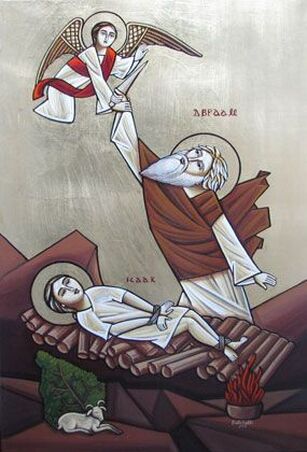
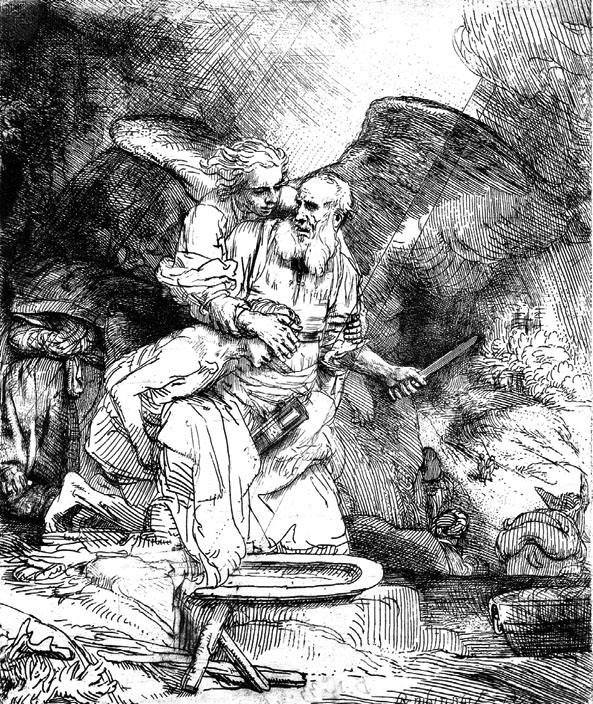
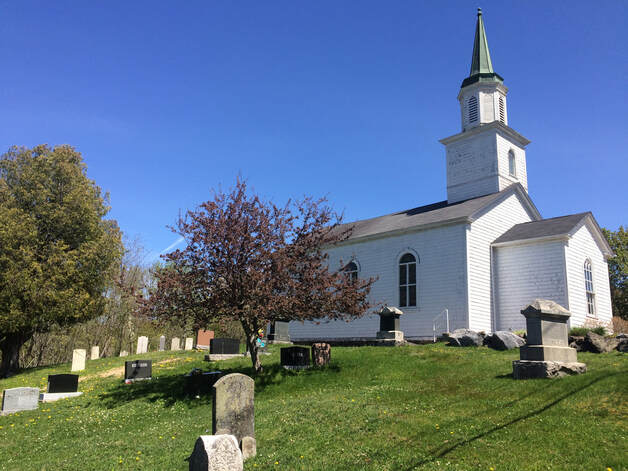

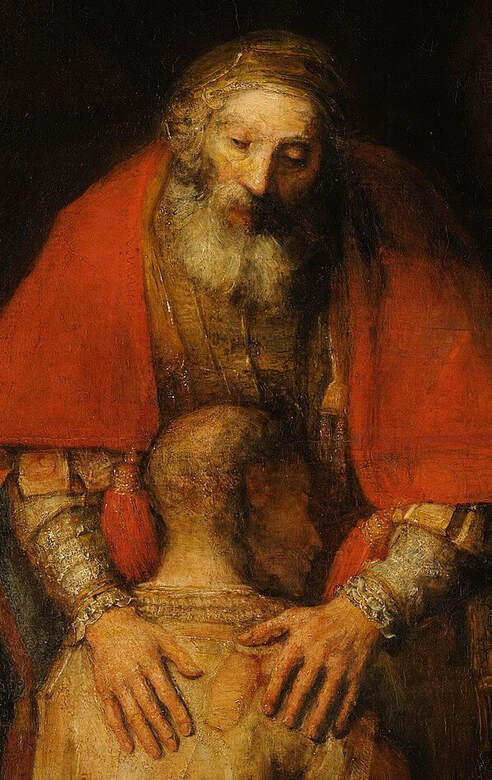
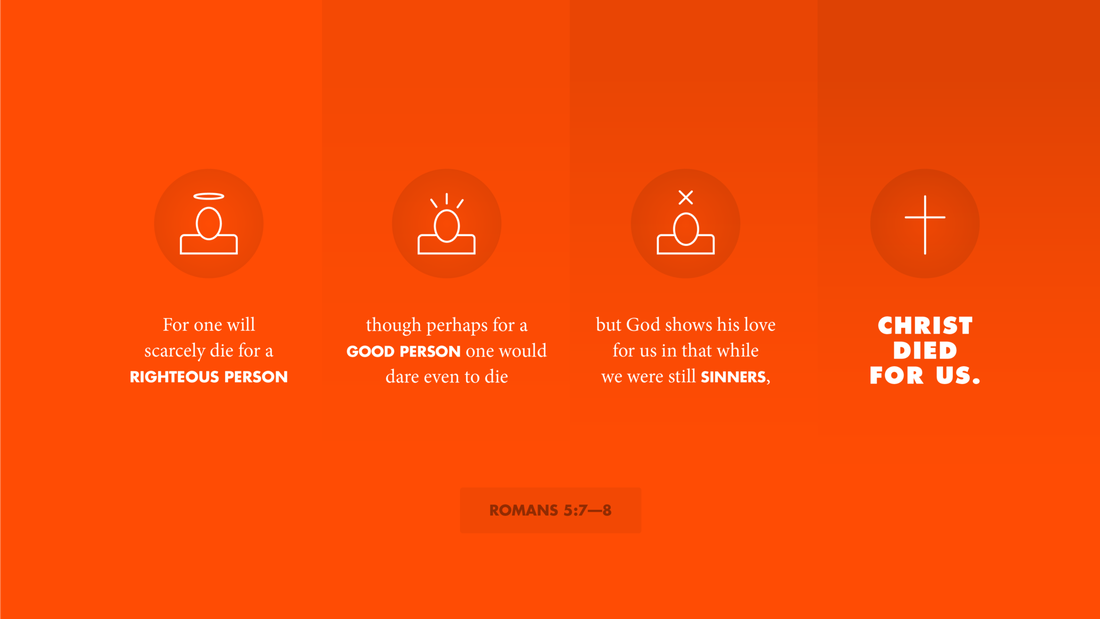

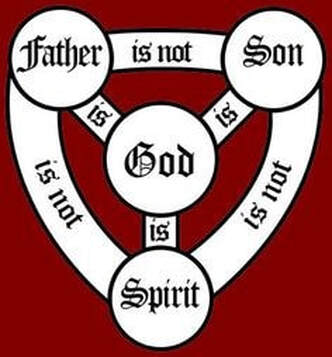
 RSS Feed
RSS Feed
